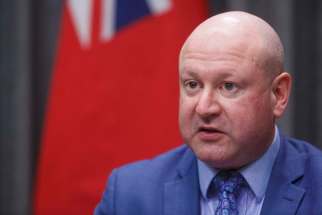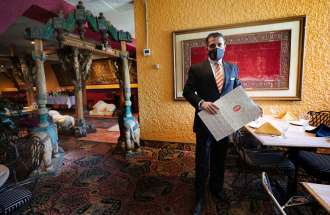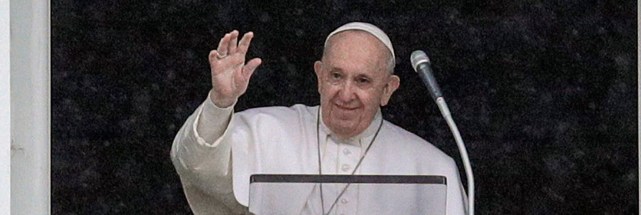Further testing rules out U.K. variant on northern Manitoba reserve
Read this article for free:
or
Already have an account? Log in here »
To continue reading, please subscribe:
Monthly Digital Subscription
$0 for the first 4 weeks*
- Enjoy unlimited reading on winnipegfreepress.com
- Read the E-Edition, our digital replica newspaper
- Access News Break, our award-winning app
- Play interactive puzzles
*No charge for 4 weeks then price increases to the regular rate of $19.00 plus GST every four weeks. Offer available to new and qualified returning subscribers only. Cancel any time.
Monthly Digital Subscription
$4.75/week*
- Enjoy unlimited reading on winnipegfreepress.com
- Read the E-Edition, our digital replica newspaper
- Access News Break, our award-winning app
- Play interactive puzzles
*Billed as $19 plus GST every four weeks. Cancel any time.
To continue reading, please subscribe:
Add Free Press access to your Brandon Sun subscription for only an additional
$1 for the first 4 weeks*
*Your next subscription payment will increase by $1.00 and you will be charged $16.99 plus GST for four weeks. After four weeks, your payment will increase to $23.99 plus GST every four weeks.
Read unlimited articles for free today:
or
Already have an account? Log in here »
Hey there, time traveller!
This article was published 16/02/2021 (1759 days ago), so information in it may no longer be current.
A highly contagious variant of COVID-19, which first appeared in the United Kingdom, was mistakenly suspected in seven COVID-19 cases on a northern First Nation because it shares the same markers as a “Manitoba variant” of the virus.
Over the weekend, there were concerns the B.1.1.7 mutation had arrived on the remote Pauingassi First Nation in the thick of a COVID-19 outbreak.
On Tuesday, chief provincial public health officer Dr. Brent Roussin said the seven cases had been processed by the National Microbiology Lab and came back negative for the U.K. variant.
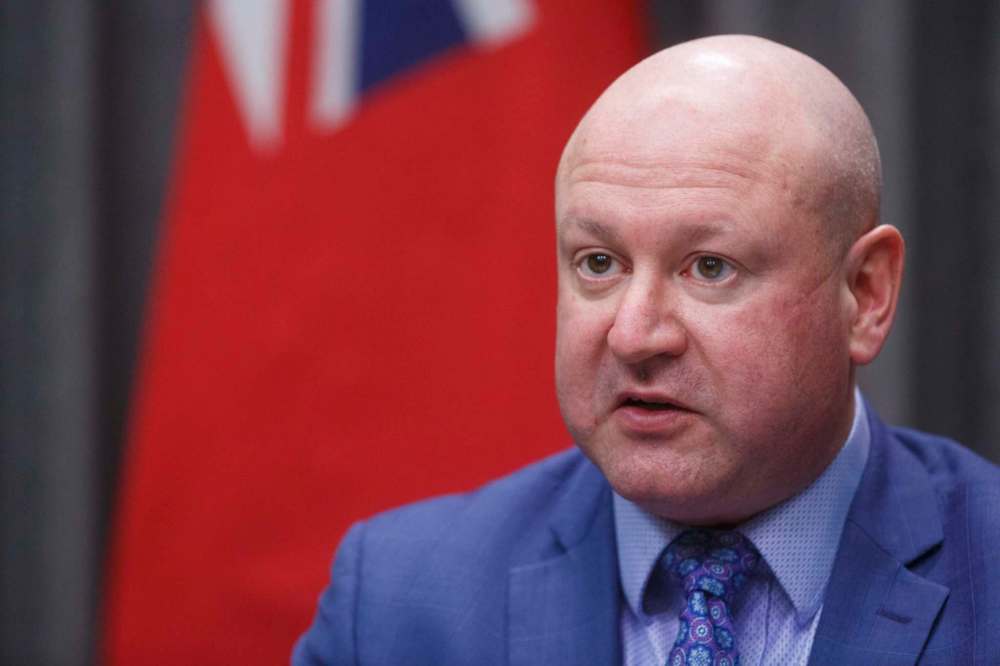
“It’s really important that we keep these variants of concern from grabbing a foothold in our community or it will really have a negative impact on our ability to reopen,” Roussin said. “I think it’s clear that we’re not going to be just done with this virus, certainly not this calendar year.”
On Saturday, the Assembly of Manitoba Chiefs said several samples connected to the Pauingassi outbreak were identified as probable B.1.1.7 cases by Cadham Provincial Laboratory, which screens COVID-19 samples for markers in the genetic code that distinguishes the variant of concern.
Dr. Marcia Anderson, a medical officer of health and leader of the First Nation Pandemic Response Co-ordination Team, compared the screening test to finding a typo on one page of a novel, whereas the sequencing process is more like a computer analysis of all words in a book.
Test positivity rates up
Test positivity rates for both Winnipeg and the province have edged up slightly following the loosening of pandemic restrictions on Friday.
On Tuesday, the five-day test positivity rate was 5.9 per cent provincewide, and it was 4.5 per cent in Winnipeg. Both of those figures are up from Friday’s rates: 4.8 per cent provincially and four per cent in Winnipeg. As of Friday, restaurants and lounges could open, as could gyms, nail salons, yoga studios and tattoo parlours, with capacity limits.
Test positivity rates for both Winnipeg and the province have edged up slightly following the loosening of pandemic restrictions on Friday.
On Tuesday, the five-day test positivity rate was 5.9 per cent provincewide, and it was 4.5 per cent in Winnipeg. Both of those figures are up from Friday’s rates: 4.8 per cent provincially and four per cent in Winnipeg. As of Friday, restaurants and lounges could open, as could gyms, nail salons, yoga studios and tattoo parlours, with capacity limits.
The province reported 96 new cases of COVID-19 on Tuesday, in addition to 71 positive tests on Monday, the Louis Riel Day holiday.
Most of the new cases (93) are in the Northern Health region, with 51 in Winnipeg, 13 in Interlake-Eastern, eight in Southern Health, and two in Prairie Mountain.
Four more Manitobans have died of COVID-19, all of them in Winnipeg, including a man in his 60s; a man in his 70s linked to an outbreak at St. Boniface Hospital unit B5; a man in his 90s; and a woman in her 90s.
The province’s top doctor urged the public to remain vigilant, as the province relaxes pandemic response restrictions at the same time it braces for variants of the virus that are more communicable and pose a greater threat to the health-care system.
“We have to continue to remain vigilant,” Roussin said. “We’ve seen too many examples of individuals out and about while ill and exposing many, many Manitobans.”
On Tuesday, there were 1,625 active COVID-19 cases in Manitoba, with 230 people in hospital (86 had active COVID-19 and 144 were no longer considered infectious but still needed care).
There were 13 active COVID-19 cases in the province’s intensive care units, as well as 13 who are no longer infectious but continue to require critical care.
Manitoba’s total number of pandemic deaths has reached 875.
Provincial laboratory numbers show 1,390 tests were completed Monday, bringing the total number since early February 2020 to 503,523.
“Any screening test is designed to give an early warning, or an early signal that more investigation is needed,” Anderson told the Free Press. “It can give us several days of a head start, on a more aggressive containment strategy, compared to waiting for the full sequencing.”
When samples came back from Cadham lab with the B.1.1.7 marker, public health officials renewed their investigations into the cases to identify any additional contacts and to ensure people were properly quarantining.
As of Tuesday, Pauingassi had 42 residents with an active COVID-19 case, 115 people had recovered and there were 21 outstanding contacts who were within the timeframe for infection. Members of the military have been in the community since Feb. 6 to help battle the virus.
Manitoba officials inform First Nations band councils when they suspect a concerning variant has reached their community, so they can adjust their lockdown or checkpoint policies, Anderson said.
Roussin said the announcement of probable cases was made to avoid unnecessary “fear or panic,” as public health conducts additional interviews and informs households to isolate for up to 24 days in case the variant is detected.
“We’re informing the people who ‘screened in,’ we’re informing their contacts, so word gets out quite (quickly),” Roussin said.
“It’s really important that we keep these variants of concern from grabbing a foothold in our community or it will really have a negative impact on our ability to reopen. I think it’s clear that we’re not going to be just done with this virus, certainly not this calendar year.”
– Dr. Brent Roussin
Manitoba uses a two-step process to ensure it catches cases of coronavirus variants. First, Cadham Provincial Lab on William Avenue screens select positive samples to look for genetic markers that could indicate a variant of concern, such as those that have cropped up in the U.K., South Africa and Brazil. Second, if markers are found, samples are sent to the National Microbiology Lab on Arlington Street for full diagnostic testing.
Roussin said the variant that triggered the public health response in Pauingassi doesn’t appear to be more contagious or result in more severe outcomes than the virus circulating throughout Manitoba.
However, the “Manitoba variant,” which has been detected in the province previously, has the same deletion in its genetic code as the U.K. variant, which the provincial lab targets as part of its screening process, Roussin said.
“We’ll have to continue to work to ensure we have the right targets on our screening tests, to ensure that we’re getting a bit more out of the screening tests, but this is something that’s going to happen from time to time,” Roussin said.

The top doctor was unable to say on Tuesday how many samples had been sent to the national lab for genomic sequencing after being identified as a probable case.
Roussin said all positive COVID-19 samples identified since the start of February were screened for mutations over the weekend.
“We did see a number of hits in addition to the seven,” Roussin said. “All of those have been sent for sequencing. Many of them are from the same community, so you can expect the sequencing is going to show the same as for those seven, but we’ll follow up to ensure.”
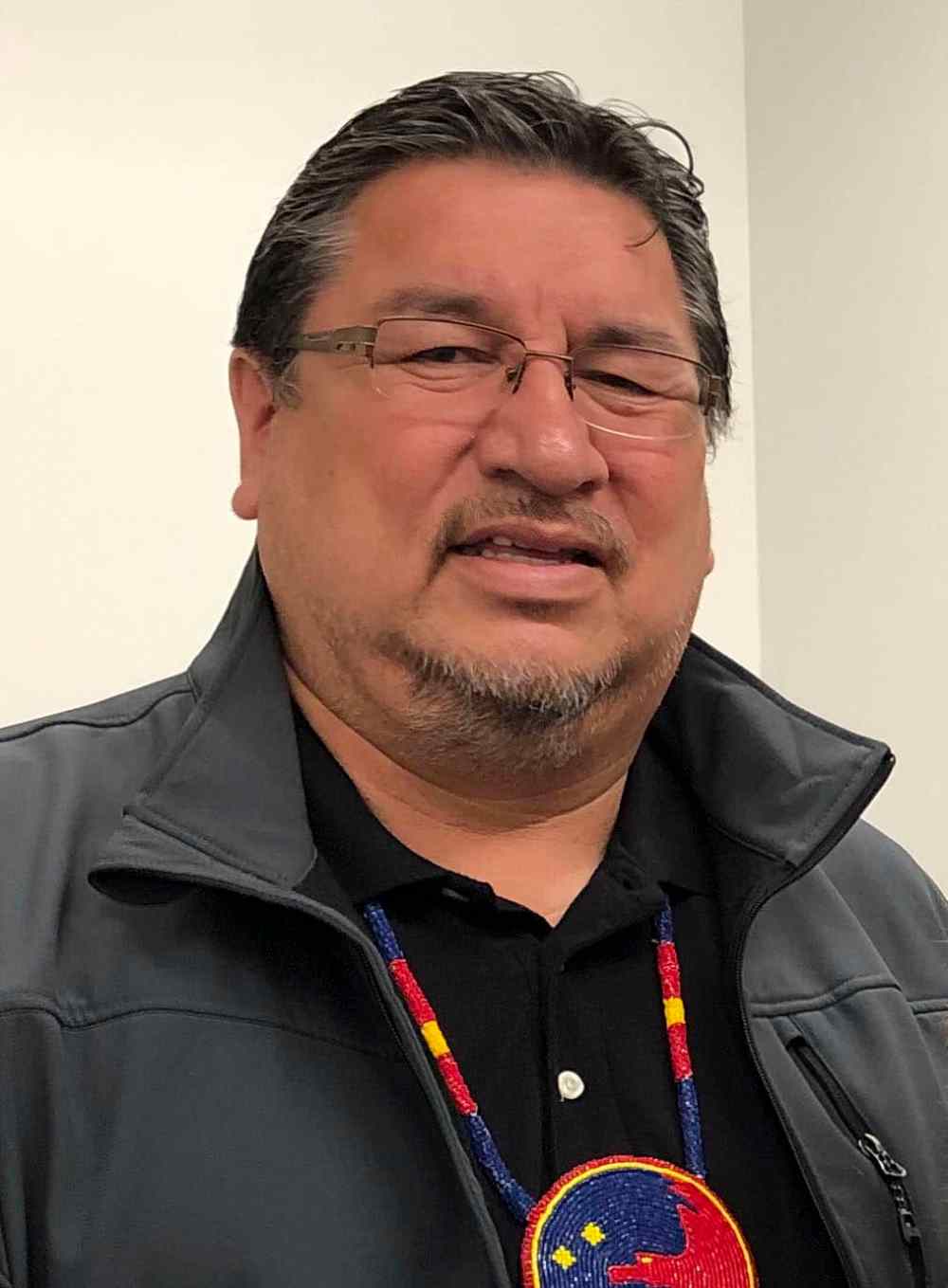
Roussin said the province only plans to announce confirmed variant cases.
Findings of genomic sequencing for the Manitoba variant will be shared with the Canadian COVID-19 Genomics Network. In the meantime, Roussin said the province will keep an eye on the mutation to see if it results in increased hospitalizations or communicability.
On Monday, Pimicikamak First Nation (also known as Cross Lake) was alerted to a single probable B.1.1.7 case and is awaiting confirmation. That community is also fighting an outbreak, with 107 active COVID-19 cases.
“There’s a lot of physical stress, emotional stress and mental health stress,” Pimicikamak Chief David Monias said Tuesday in a virtual news conference.
The community is running out of space as it tries to isolate people. The outbreak has generated more than 300 contacts, and Monias said testing would continue in the community.
“There’s a lot of physical stress, emotional stress and mental health stress.”
– Pimicikamak Chief David Monias
The school gym has 40 cots set aside for people who return from outside the community as well as those with nowhere to sleep. Meanwhile, the college campus is being used to house people with COVID-19 and the reserve’s hotel is full.
Monias said nurses are overwhelmed and his officials met Monday with military leaders about a possible deployment to help give nurses some reprieve and help with isolation.
Roussin said public health officials do not expect to see the B.1.1.7 variant in Pimicikamak.
As of Tuesday, only one positive case of the B.117 variant had been found in Manitoba, Roussin said.
It involves a Winnipeg man who returned to the city on Jan. 19 after travelling to Africa and Europe. All members of his household self-isolated and had tested negative for the variant twice.
dylan.robertson@ freepress.mb.ca
danielle.dasilva@freepress.mb.ca

Our newsroom depends on a growing audience of readers to power our journalism. If you are not a paid reader, please consider becoming a subscriber.
Our newsroom depends on its audience of readers to power our journalism. Thank you for your support.

